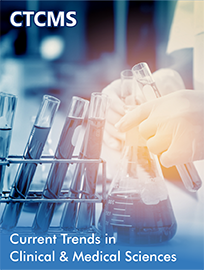 Editorial Article
Editorial Article
If Medical Science could provide a Solution to One Healthcare Issue which would you choose?
Jack Ray Gallagher, EdD, MSc, Chief Scientist & Director, Clarity Pharma Research, USA.
Received Date: September 10, 2019 Published Date: September 17, 2019
Editorial
Ischemic heart disease and stroke have remained leading causes of death globally since the turn of this century, accounting for 15.2 million deaths in 2016 [1]. Alzheimer’s disease and related dementias became the fifth leading cause of death in 2016 but were not in the top 10 in 2000, [1] and a study published this month in The Lancet notes that while cardiovascular disease is still the No. 1 cause of death worldwide, cancer has surpassed it in wealthier nations [2]. Would you pick a cure for one of these deadly diseases as the most pressing healthcare issue to solve, or would you give higher priority to development of a spectacular technological advancement such as artificial neural networks with the broad potential to resolve a number of fatal diseases? Before deciding on the healthcare issue most in need of an immediate solution, consider these lines from English poet Samuel Taylor’s “The Rime of the Ancient Mariner” [3]:
Water, water everywhere, / Nor any drop to drink. To be relevant to today’s healthcare issues, this line could be rephrased as: Data, data everywhere, / Nor any know to think.
Like the sailor stranded on a ship surrounded by saltwater that he cannot drink, we are surrounded by inconsistent or spotty realworld data that we cannot use to help find cures and solutions to our most serious diseases and healthcare issues. Our collective task is to determine how to “desalinate” our oceans of real-world data to generate the useful and actionable real-world evidence needed to help resolve critical healthcare issues. The relatively recent emergence of big data in healthcare is an organized attempt to accomplish this onerous task.
Big data analytics potentially offer great benefits to all spectrums of medical and clinical care including improved efficiency and effectiveness of medical treatments, accelerated drug discovery, and enhanced personalization of patient care [4]. Big data in healthcare are derived from such sources as electronic health records (EHRs), claims and other payor records, public records, research studies, government agencies, web and social media, specialized commercial databases (e.g., medical imaging, genomic sequencing), smart phones, and wearable devices. Big data are distinguished from traditional data used in healthcare decision making by their high levels of the “3 Vs”-velocity, volume, and variability-and are far too large to manage with traditional software and/or hardware [5]. Artificial intelligence, machine learning, and natural language processing are among tools that have evolved to help accommodate big-data demands. Compared with other industries, healthcare has been slow to adopt and leverage these and other new analytical technologies, possibly due in part to the special data challenges in healthcare including issues of privacy, security, and standardization [6].
I maintain that curing our big-data woes is as important as curing even the most prevalent deadly disease and could provide the tools to cure or ameliorate many diseases. I also believe scientific journals have a responsibility to highlight the shortcomings of existing big data and to share solutions. Current Trends in Clinical & Medical Sciences is committed to this task.
Acknowledgment
None.
Conflict of Interest
The author has no conflict of interest.
References
- World Health Organization (WHO). The top 10 causes of death, May 24, 2018.
- Dagenais GR, Leong DP, Rangarajan S, Lanas F, Lopez Jaramillo P, et al. (2019) Variations in common diseases, hospital admissions, and deaths in middle-aged adults in 21 countries from five continents (PURE): a prospective cohort study. Lancet.
- Coleridge ST (1834) The Rime of the Ancient Mariner.ss
- Roski J, Bo Linn GW, Andrews TA (2014) Creating value in health care through big data: opportunities and policy implications. Health Aff (Millwood) 33(7): 1115-1122.
- Ginsburg PB, de Loera Brust A, Brandt C, Durak A (2018) The opportunities and challenges of data analytics in health care. Brookings.
- Lee CH, Yoon HJ (2017) Medical big data: promise and challenges. Kidney Res Clin Pract 36(1): 3-11.
-
Jack Ray Gallagher. If Medical Science could provide a Solution to One Healthcare Issue which would you choose?. Curr Tr Clin & Med Page 2 of 2 Sci. 1(3): 2019. CTCMS.MS.ID.000513.
-
Healthcare, Ischemic heart disease, Stroke, Alzheimer’s disease, Cardiovascular disease, Wealthier nations, Immediate solution, Spotty real-world, Standardization
-

This work is licensed under a Creative Commons Attribution-NonCommercial 4.0 International License.






